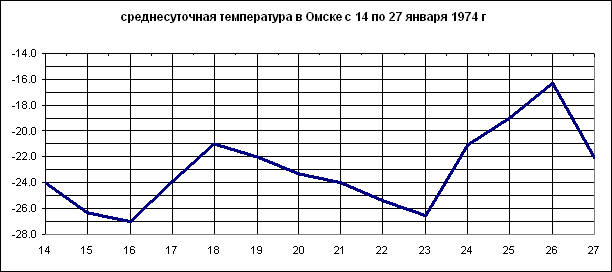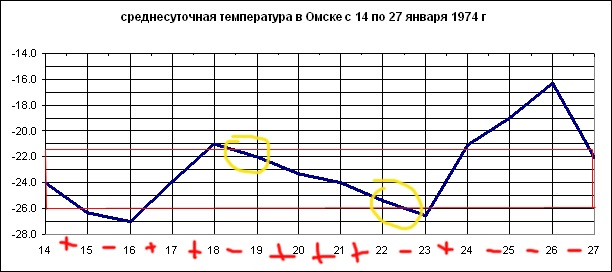Nonsense in the exam
Introduction
To begin, I will tell you the structure of passing the exam. There are two required exams - mathematics and Russian. In 2009, a new decree came into force, according to which, in addition to these 2 required subjects, the graduate chose at least two more exams for admission to a particular specialty. Now (after January 2010), the old delivery scheme has been returned, according to which at least one optional item is needed. In this article I will talk about the minuses of the exam tasks in four subjects: mathematics, Russian, physics and computer science.
Stupidity / inaccuracies and other nonsense
Algebra
From this year, part A was canceled, part B and C were enlarged and complicated.
Task B2. This task is a graph of the dependence of one parameter on another (for example, temperature on the day of the month). It seems to be a very simple task, but ... there have already been several times when the explicit answer is incorrect. This is because there is no clear rule for finding an answer. For example, take the following task (try to solve it yourself, and then compare with the correct answer).
The figure shows a graph of the average daily temperature in Omsk from January 14 to January 27, 1974. Numbers are plotted on the abscissa axis, and temperatures in degrees Celsius on the ordinate axis. Determine according to the schedule how many days from the indicated period the average temperature ranged from −26 C to −21.5. Decision


It was necessary to choose the days like this: if most of the schedule belongs to the day, then put "+".
I highlighted the controversial points in yellow, which I spoke about before the task.
UDP During the discussion, another solution was found: you need to look where the graph crosses the day, if the intersection point belongs to a given temperature range, then put "+".
An account with very large inconvenient numbers may not be the worst in the USE, but still I will relate this nuance to my post. In the era of technological progress, such an account is meaningless. Of course, there are all sorts of simplifications (folding, formulas, etc.), but again, adding / subtracting, etc., now is the lot of the computer.
Fuzzy wording of the question. Very often there are inaccuracies in the wording of the question, and this is important enough, because the questions “What height should the fence be for the jet to fly over it?” And “What maximum height should the fence be for the stream to fly over it?” Have different solutions. In the first - the answer will be from some number to infinity, in the second - this is "some" number and will be the answer to the question.
This is not the wrong question, they are worse, though I don’t remember exactly their wording, but I think the meaning is clear.
Russian
The minuses include several correct answer options in Part A (I remind you that only one is possible in it !!! the correct answer), although this is most likely found only in the preparatory materials and there will not be such shortcomings in the exam itself, I hope ... After all, the computer checks Part A and he already has the correct answers in the database, and if you chose the right answer, but which does not match the answer in the database - 0 points.
Inaccuracies in the wording of the assignment in Part B.For example, the task "Find among sentences 5-13 a one-part sentence that is part of a compound". A person who has never passed such a test will find 1 sentence that fits the description and will be partly right, but several sentences can be the answer and you need to record both, and not one of them. But the endings in the question are just changed ...
Otherwise, the Unified State Exam in Russian checks your knowledge of the rules, understanding of texts and knowledge of literary works (I have problems with the latter, since I read a little, then it’s difficult to give examples from classical literature to me task, now I'm trying to catch up, reading at least a brief summary of the works).
Physics
Part B. Only this minus is in the physics exam, but it is very significant, because in this part only the answer is written, not the solution itself. What's bad about it? - rounding ... I will explain. You are given values, for example, U = 3.8 (V), R = 1.793 (Ohms), you need to find the current strength (it is calculated by the formula I = U / R). Counting it, we get the result I = 2,119353039598438, we round up to I = 2,12 (A). Again, it checks a computer with a fixed answer base, let's say the answer was 2.1 ... Then for this problem, which we solved correctly (!) And simply rounded off “in our own way,” they will give us - 0 points. The stupidity is incredible!
The rest of the physics exam, I consider one of the best in terms of design - clearly posed questions, there are all the necessary data (constants, translations of decimal prefixes) and the ability to use a calculator.
Computer science
This is perhaps the closest exam to the IT field :). Tasks include from the simplest (transferring Kbytes to Mbit, RGB-model, compiling an IP address from pieces, etc., etc.) to quite complex ones (Part C - writing programs on different topics (program adjustment, operations with arrays, strings, a logical game (such as “who will win - the first player or the second?”), etc.)
Syntax. Typically, the program is written on a computer and autocompleted, the exam in computer science is written on pieces of paper and the program is written on them, so any extra period, comma, slash, etc. -. minus score really terrible
H I consider the question as “an unnecessary task:“ Vasya, Misha, Petya said something and everyone told the truth 1 time and also lied 1 time too, to find out who is right and who is to blame? ”."The mystery of Einstein . "
Verification Commission . Part C in computer science, however, as in any other subject, is checked by teachers. In USE assignments, programs are usually presented in 3 programming languages: C, Pascal, BASIC. I study C and wanted to write programs in it, but when I asked our teacher if the people from the commission would be able to verify my solution to the problem in such a language, she replied: “They can, but if they don’t understand something (due to that in most schools they study Pascal, not C), they will take points. ”
In order not to lose points due to “rare meetings of the commission with C”, one has to write a solution to problems on Pascal.
Conclusion
In conclusion, I want to say that for me the exam is not a true test of human knowledge. I don’t want to say that it’s better to return to the old type of
PS Everything written here is based on my preparation for the exam, this is just my opinion. For someone, all this is seen in a different way. I just tried to highlight the obvious disadvantages of the current USE scheme.
